Find Help
More Items From Ergsy search
-
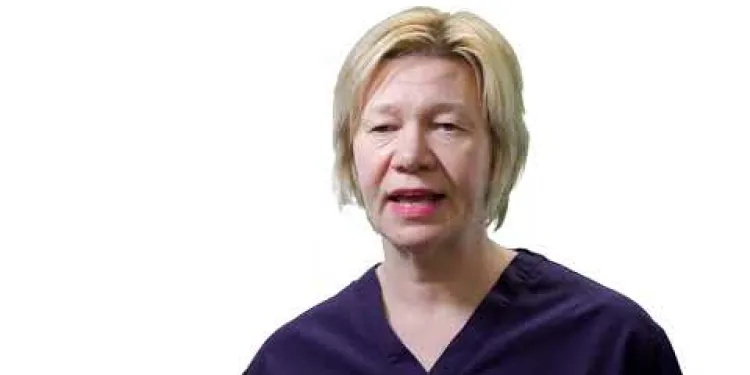
Head and Neck Cancer Diagnosis
Relevance: 100%
-
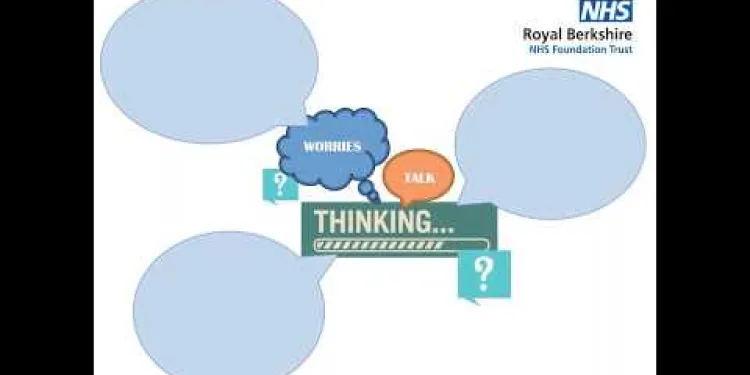
Royal Berkshire NHS Foundation Trust: Radiotherapy for head and neck cancers
Relevance: 62%
-
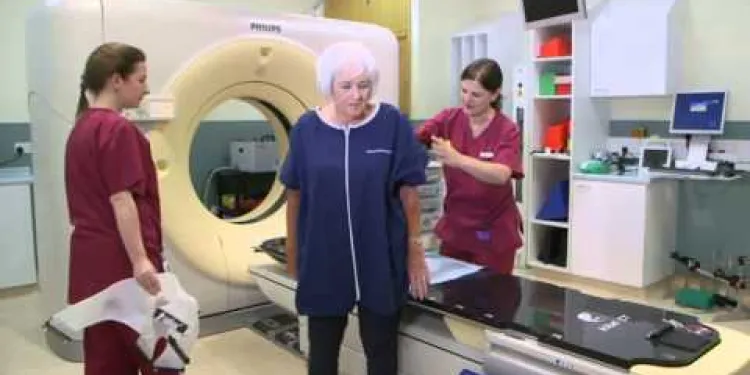
Radiotherapy to the Head and Neck: A Guide for patients and their carers
Relevance: 60%
-
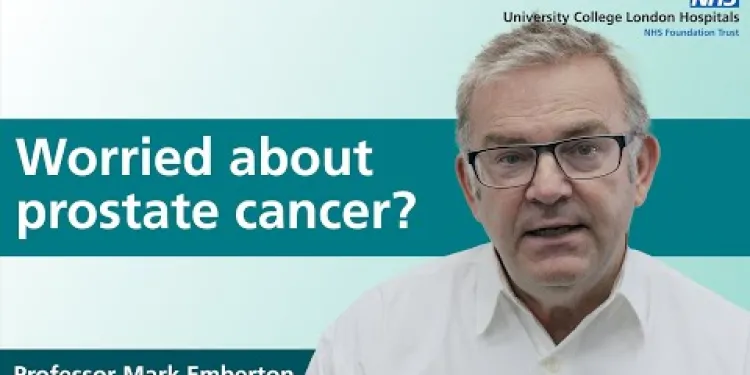
Prostate cancer diagnosis and tests
Relevance: 41%
-
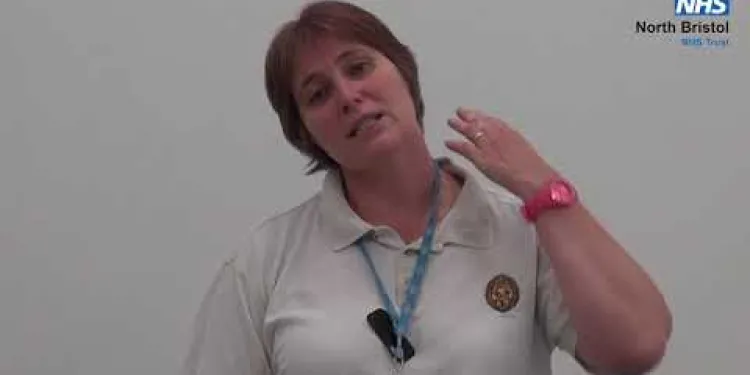
Neck Exercises
Relevance: 39%
-

Are AI systems used alone in lung cancer diagnosis or alongside human radiologists?
Relevance: 39%
-
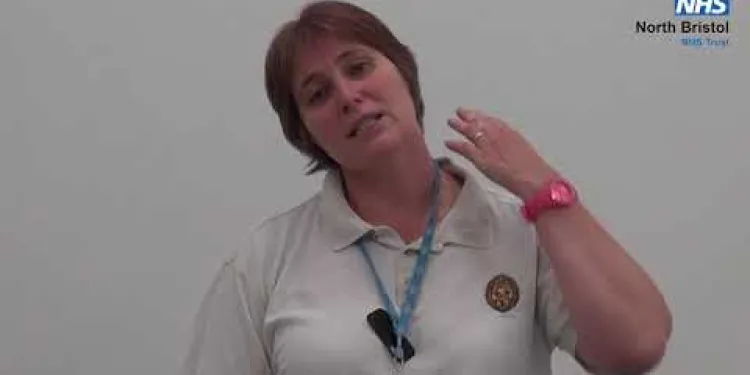
Neck Exercises
Relevance: 39%
-

Neck Care Exercises
Relevance: 38%
-
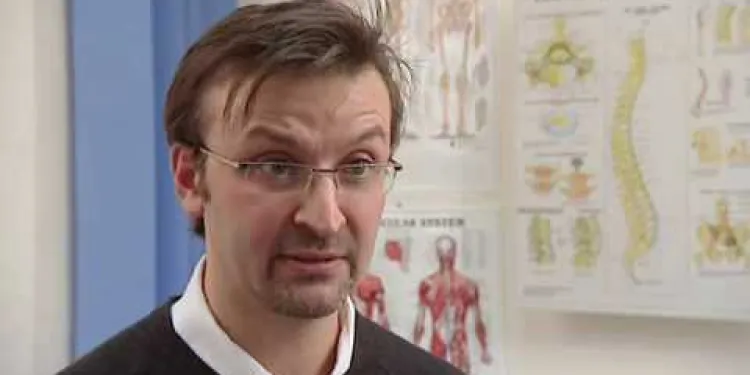
Advice on neck pain and whiplash
Relevance: 34%
-

Can concussions occur without a direct blow to the head?
Relevance: 32%
-
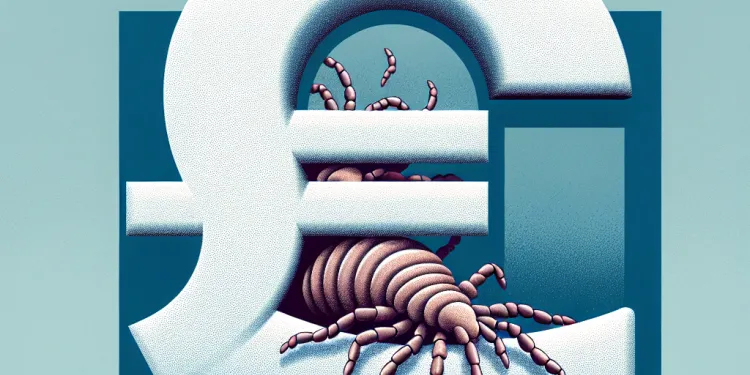
What are head lice?
Relevance: 31%
-
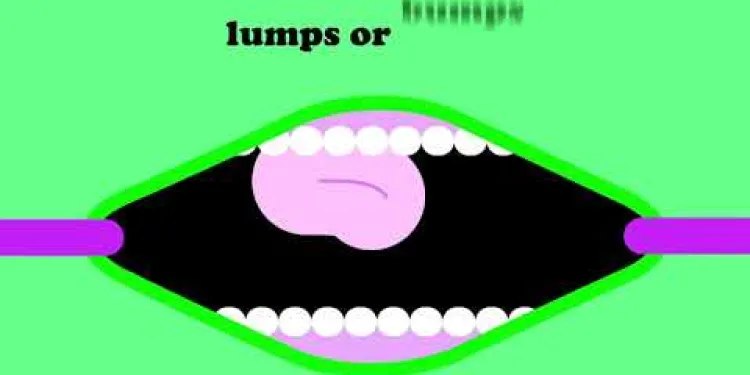
Mouth Cancer Infomercial
Relevance: 28%
-
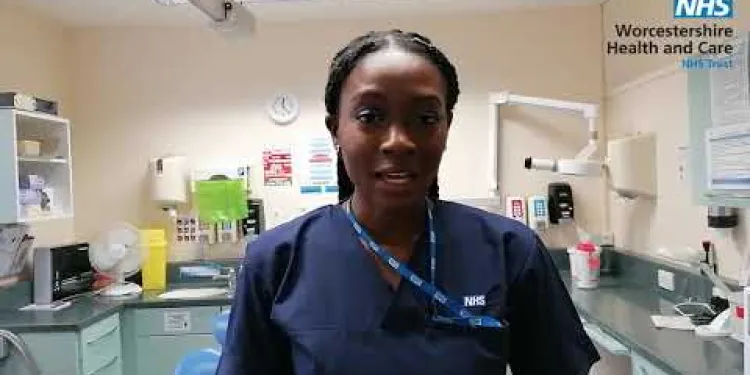
Mouth Cancer Awareness
Relevance: 27%
-
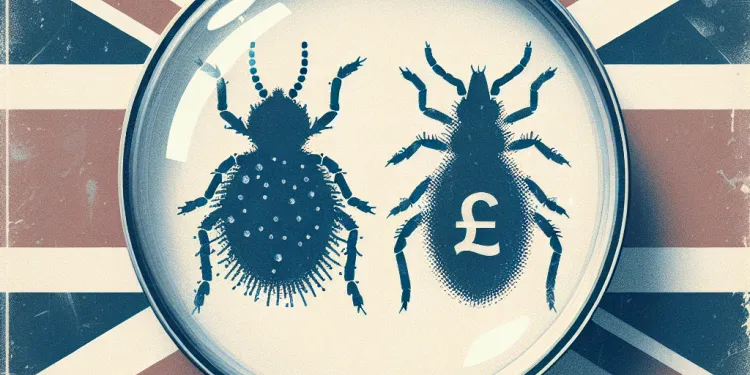
Are nits and head lice the same thing?
Relevance: 26%
-
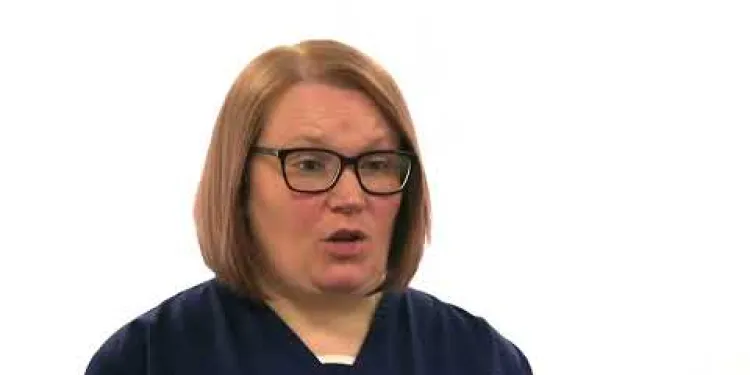
Vulval Cancer
Relevance: 26%
-
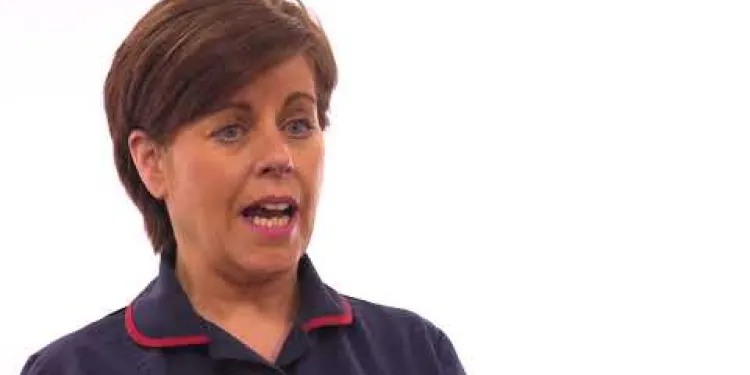
Endometrial Cancer
Relevance: 26%
-

How is testicular cancer diagnosed?
Relevance: 26%
-

What is Pancreatic Cancer?
Relevance: 25%
-

Can baby sleep pillows prevent flat head syndrome?
Relevance: 25%
-

What is testicular cancer?
Relevance: 25%
-
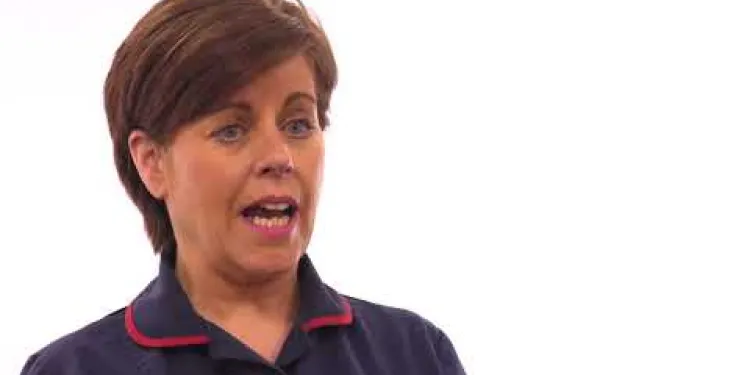
Endometrial Cancer
Relevance: 24%
-
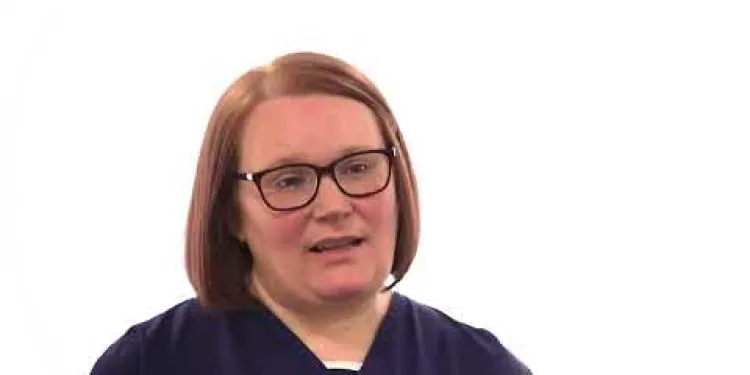
Vaginal Cancer
Relevance: 24%
-

How is bowel cancer diagnosed?
Relevance: 24%
-
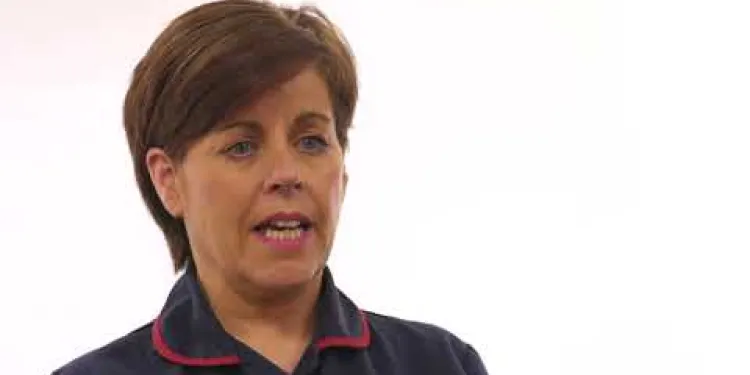
Ovarian Cancer
Relevance: 24%
-
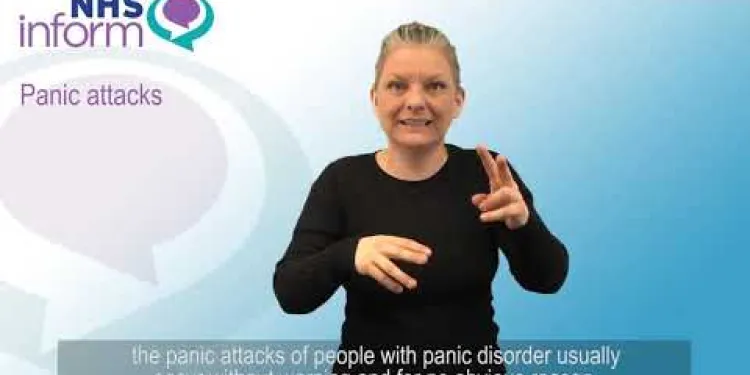
BSL - Diagnosis of panic disorder
Relevance: 24%
-
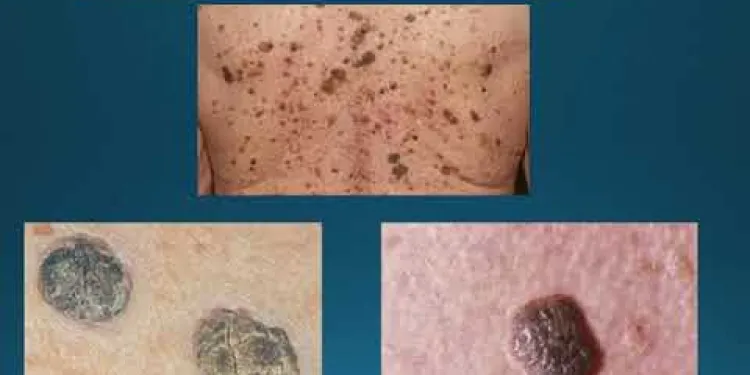
Skin cancer education
Relevance: 24%
-

Can testicular cancer spread to other parts of the body?
Relevance: 24%
-
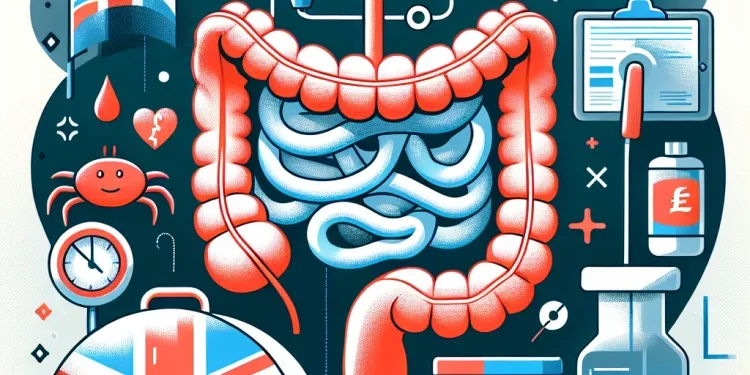
What is Bowel Cancer?
Relevance: 24%
-

What is Prostate Cancer?
Relevance: 23%
-

Is testicular cancer treatable?
Relevance: 23%
-

What is testicular cancer?
Relevance: 23%
-

How can AI improve patient outcomes in lung cancer?
Relevance: 23%
-
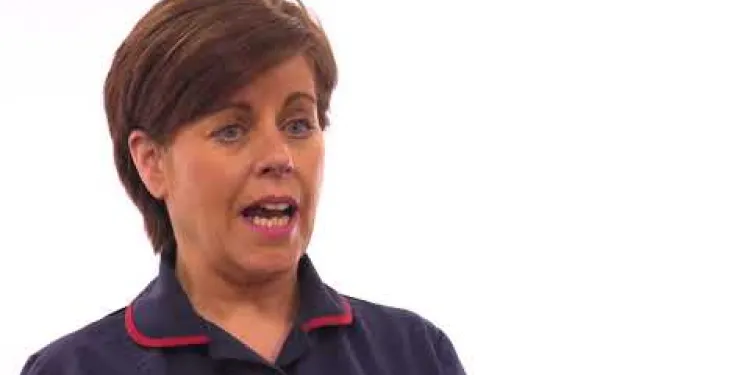
Endometrial Cancer
Relevance: 23%
-
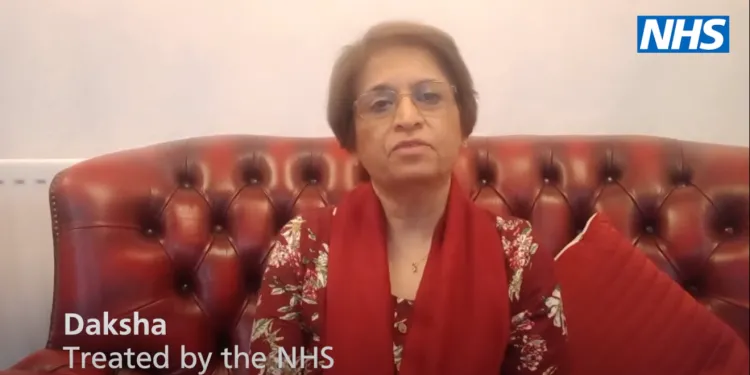
What is Cancer?
Relevance: 23%
-
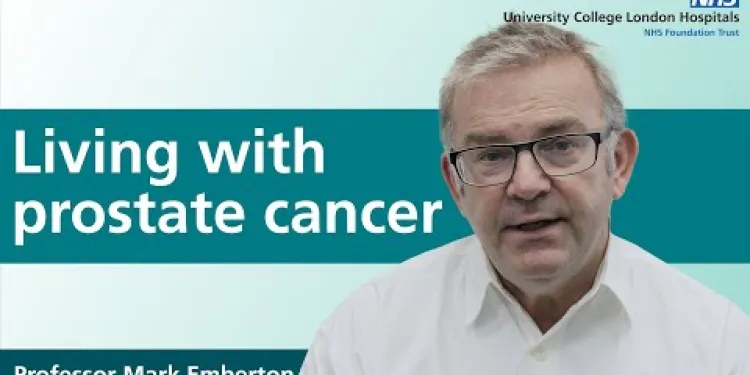
Living with prostate cancer
Relevance: 23%
-
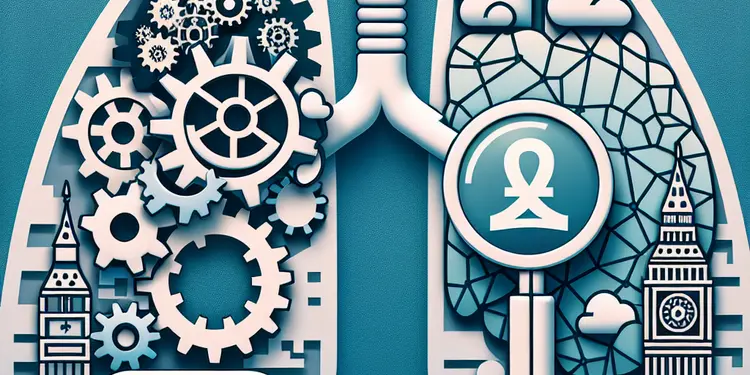
Have AI systems for lung cancer detection been clinically validated?
Relevance: 23%
-

What are the stages of testicular cancer?
Relevance: 23%
-

What support is available for individuals diagnosed with bowel cancer?
Relevance: 22%
-

What is testicular cancer?
Relevance: 22%
-

What is colorectal cancer?
Relevance: 22%
About head and neck cancer
Head and neck cancer refers to cancers that develop in the tissues and organs of the head and neck region. This includes the oral cavity (mouth), throat (pharynx), voice box (larynx), nasal cavity, sinuses, and salivary glands. These cancers can arise from various types of cells, including squamous cells, which line the inside of the head and neck.
Risk factors for head and neck cancer include tobacco and alcohol use, human papillomavirus (HPV) infection, exposure to certain chemicals or toxins, poor oral hygiene, and a diet lacking in fruits and vegetables.
Symptoms of head and neck cancer may include:
- Persistent sore throat
- Difficulty swallowing
- Lump or swelling in the neck
- Hoarseness or changes in voice
- Ear pain
- Persistent nasal congestion or sinus pressure
- Chronic cough
- Unexplained weight loss
- Oral lesions or sores that don't heal
- Difficulty breathing
Diagnosis of head and neck cancer
Diagnosis typically involves a physical examination, imaging tests such as CT scans or MRIs, and biopsy to confirm the presence of cancerous cells.
Treatment of head and neck cancer
Treatment for head and neck cancer depends on various factors including the type and stage of the cancer, as well as the patient's overall health and preferences. Treatment options may include surgery, radiation therapy, chemotherapy, targeted therapy, or a combination of these approaches. Additionally, supportive care such as speech therapy or nutritional support may be incorporated into the treatment plan to help manage side effects and improve quality of life.
Early detection and treatment can improve outcomes for individuals with head and neck cancer. It's important to seek medical attention promptly if you experience any symptoms or risk factors associated with this type of cancer. Additionally, regular dental check-ups and screenings can aid in the early detection of oral cancers.
Head and Neck Cancer Diagnosis
Introduction to Head and Neck Cancer
Head and neck cancer encompasses a variety of malignant tumours that develop in or around the throat, larynx, nose, sinuses, and mouth. The occurrence of these cancers can be influenced by factors such as tobacco use, alcohol consumption, and human papillomavirus (HPV) infection. Early detection and diagnosis are critical for effective treatment and improved survival rates.Primary Symptoms and Signs
Common symptoms of head and neck cancer can include a persistent sore throat, difficulty swallowing, unexplained weight loss, changes to the voice or hoarseness, lumps in the neck, and persistent ear pain. Not all symptoms indicate cancer; however, it is essential to seek medical advice if these symptoms persist. Timely consultation with a healthcare professional can lead to early diagnosis, which significantly impacts treatment outcomes.Diagnostic Procedures
The diagnostic process typically begins with a detailed medical history and physical examination. If head and neck cancer is suspected, various diagnostic tests may be employed: - Endoscopy: A flexible tube with a light and camera, called an endoscope, is used to examine areas within the head and neck. - Imaging Tests: Techniques such as CT scans, MRIs, and PET scans provide detailed images of internal structures and help in assessing the extent of the tumour. - Biopsy: A sample of suspicious tissue is surgically removed and examined under a microscope to confirm the presence of cancer cells.Specialist Consultation and Multidisciplinary Team Approach
In the UK, patients diagnosed with head and neck cancer are typically referred to a multidisciplinary team (MDT) of specialists. This team can include surgeons, oncologists, radiologists, pathologists, dietitians, and speech therapists. The MDT collaborates to develop a comprehensive treatment plan tailored for each patient. Regular meetings ensure coordinated care, and patients benefit from the expertise of various healthcare professionals.Importance of Early Detection and Regular Screening
Early detection is crucial for improving prognosis and survival rates. In the United Kingdom, awareness campaigns and regular screening initiatives aim to educate the public on the importance of recognizing early signs of head and neck cancer. For high-risk individuals, such as smokers and heavy drinkers, regular screenings and prompt evaluation of symptoms are vital. Early-stage cancers are usually more treatable and often associated with better health outcomes.Conclusion
Head and neck cancer diagnosis involves a combination of symptom evaluation, advanced imaging techniques, and biopsy procedures. In the UK, a multidisciplinary team approach ensures patients receive comprehensive and effective care. Awareness and regular screenings play a crucial role in early detection, opening the door to more successful treatments and improved survival rates. Seeking timely medical attention can make a significant difference in combating head and neck cancer.About Head and Neck Cancer
Head and neck cancer is when harmful cells grow in areas like the mouth, throat, voice box, nose, sinuses, and saliva glands. These cancers often start from cells called squamous cells, which are inside these parts.
Things that can increase the chance of getting head and neck cancer are smoking, drinking alcohol, having certain viruses like HPV, being around harmful chemicals, not taking care of your teeth and mouth, and not eating enough fruits and vegetables.
Signs that someone might have head and neck cancer include:
- A sore throat that doesn't go away
- Having trouble swallowing
- A lump or swelling in the neck
- A hoarse voice or voice changes
- Ear pain
- A blocked or stuffy nose that won’t stop
- Constant coughing
- Losing weight without trying
- Sores in the mouth that don’t heal
- Having trouble breathing
Diagnosis of Head and Neck Cancer
Doctors find out if someone has head and neck cancer by doing a physical check-up, taking special pictures like CT or MRI scans, and testing small bits of tissue (biopsy) to see if they have cancer cells.
Treatment of Head and Neck Cancer
How doctors treat head and neck cancer depends on where it is, how big it is, and how healthy the person is. Treatment can include surgery, using high-energy rays (radiation therapy), taking strong medicine (chemotherapy), or using drugs that specifically attack cancer cells (targeted therapy). Sometimes, combining these treatments works best. Help from speech therapy and eating well can also be part of the plan to help with any problems caused by the treatment.
Finding and treating head and neck cancer early can help a lot. If you have any symptoms or risks we talked about, please see a doctor. Regular check-ups with the dentist can also help catch these cancers early.
Head and Neck Cancer Diagnosis
Introduction to Head and Neck Cancer
Head and neck cancer refers to bad lumps, or tumours, in the throat, voice box (larynx), nose, sinuses, and mouth. These cancers can be caused by smoking, drinking alcohol, or the human papillomavirus (HPV). Finding out about cancer early can help with better treatment and make people feel better.Primary Symptoms and Signs
Sometimes, signs of head and neck cancer are: - A sore throat that doesn't go away - Hard to swallow food or drink - Losing weight without trying - Voice changes or sounding hoarse - A lump in the neck - Ear pain that lasts Not all of these signs mean cancer, but it's important to see a doctor if they don't go away. Seeing a doctor quickly can help find cancer early, which helps with treatment.Diagnostic Procedures
Diagnosing head and neck cancer starts with: - A doctor checking your health history and examining you. If cancer is suspected, doctors may do these tests: - Endoscopy: A thin tube with a light and camera looks at the throat, nose, or mouth. - Imaging Tests: CT scans, MRIs, and PET scans take pictures inside your body to see the tumour. - Biopsy: Doctors take a small piece of tissue and check it for cancer cells under a microscope.Specialist Consultation and Multidisciplinary Team Approach
In the UK, if someone has head and neck cancer, a team of special doctors called a multidisciplinary team (MDT) will help. This team may have surgeons, cancer doctors, radiologists, dietitians, and speech therapists. They work together to make a care plan for each patient. The team meets often to help patients get the best care.Importance of Early Detection and Regular Screening
Finding cancer early makes treatment easier and people healthier. In the UK, there are campaigns and tests to help people know about head and neck cancer signs. People who smoke or drink a lot should go for regular tests. If doctors find cancer early, treatment often works better.Conclusion
Finding head and neck cancer involves looking at symptoms, using imaging tests, and doing biopsies. In the UK, a team of specialists gives patients good care. Knowing the signs and getting regular tests helps find cancer early, making treatment better and improving health. Seeing a doctor quickly is important for fighting head and neck cancer.Frequently Asked Questions
What are the common symptoms of head and neck cancer?
Common symptoms include a lump or sore that doesn't heal, persistent sore throat, difficulty swallowing, and changes in your voice. If you experience any of these symptoms, it is recommended to consult with a healthcare professional.
How is head and neck cancer diagnosed?
Diagnosis typically involves a physical examination, imaging tests like CT or MRI scans, and tissue biopsy to confirm the presence of cancer cells.
What are the risk factors for head and neck cancer?
Risk factors include tobacco use, excessive alcohol consumption, human papillomavirus (HPV) infection, poor oral hygiene, and exposure to certain environmental toxins.
Can head and neck cancer be prevented?
While not all cases can be prevented, reducing risk factors such as quitting smoking, limiting alcohol use, maintaining good oral hygiene, and getting vaccinated against HPV can lower your risk.
What types of treatments are available for head and neck cancer?
Treatment options include surgery, radiation therapy, chemotherapy, targeted therapy, or a combination of these depending on the cancer stage and location.
Is head and neck cancer hereditary?
Most head and neck cancers are not hereditary, but having a family history of cancer can increase your risk. Genetic counseling may be recommended if you have a significant family history.
What is the role of HPV in head and neck cancer?
HPV, particularly HPV-16, is a significant risk factor for oropharyngeal cancer, which affects parts of the throat, tongue, and tonsils. Vaccination against HPV can help reduce this risk.
What should I do if I suspect I have symptoms of head and neck cancer?
If you experience symptoms like a persistent lump, sore throat, or voice changes, contact your GP for a referral to a specialist for further evaluation.
What are the stages of head and neck cancer?
Head and neck cancers are typically staged from I (localized) to IV (advanced spread). Staging helps determine the most appropriate treatment plan.
Can head and neck cancer be curable?
The curability of head and neck cancer depends on the type, location, and stage at diagnosis. Early-stage cancers have better prognosis and higher chances of cure.
Are there any clinical trials available for head and neck cancer patients in the UK?
Yes, clinical trials are available and can offer access to new treatments. Speak to your oncologist about ongoing clinical trials that may be suitable for you.
What lifestyle changes can help support treatment for head and neck cancer?
Adopting a healthy lifestyle by quitting smoking, reducing alcohol intake, eating a balanced diet, and maintaining oral hygiene can support your treatment and overall well-being.
How does radiation therapy work for head and neck cancer?
Radiation therapy uses high-energy beams to target and kill cancer cells in the affected area. It's commonly used post-surgery to eliminate any remaining cancer cells.
What is the recovery process like after head and neck cancer treatment?
Recovery varies depending on the treatment. It may involve rehabilitation, physical therapy, speech therapy, and regular follow-up visits to monitor for recurrence and manage side effects.
Where can I find support and resources for head and neck cancer patients in the UK?
Support groups, counseling services, and patient resources are available through organizations like Cancer Research UK, Macmillan Cancer Support, and local NHS services.
What are signs of head and neck cancer?
Here are common signs to look for:
- A sore throat that doesn’t go away
- Trouble swallowing food
- A lump or bump in your neck
- A voice that sounds different
- Ear pain
If you notice these signs, talk to a doctor. You can also use tools like pictures or videos to help understand better. Talking with someone you trust can also give support.
Some signs to look out for are:
- A bump or sore that doesn't get better.
- A sore throat that won't go away.
- Having trouble swallowing food.
- Changes in your voice.
If you notice any of these signs, it's a good idea to talk to a doctor or a nurse.
How do doctors find out if someone has head and neck cancer?
To find out if someone has cancer, doctors do a check-up. They might use special machines to take pictures inside the body, called CT or MRI scans. They also might look at a tiny piece of body tissue under a microscope to see if there are cancer cells.
Tools and Tips: Pictures like CT or MRI scans help doctors see inside the body. Looking at a small bit of tissue up close can help confirm if it's cancer. Remember, it's okay to ask your doctor questions if you're unsure about anything.
What can make you more likely to get head and neck cancer?
Things that might cause problems are smoking, drinking too much alcohol, having an HPV infection, not brushing your teeth, and being around certain bad chemicals.
Can we stop head and neck cancer from happening?
Head and neck cancer is a type of illness. But we can do things to help prevent it. Here are some tips:
- Don't smoke. Smoking can make you sick.
- Avoid drinking too much alcohol.
- Always wear sunscreen to protect your skin.
- Eat healthy foods like fruits and vegetables.
- Brush your teeth every day to keep your mouth clean.
- Visit your doctor or dentist regularly for check-ups.
It can be helpful to talk to a doctor or nurse if you have questions. You can also ask a family member or friend to support you.
There are some things you can do to help stay healthy. Try these tips:
- Stop smoking
- Don’t drink too much alcohol
- Brush your teeth every day
- Get a vaccine to protect against HPV
These can help make your chance of getting sick smaller.
What are the treatments for head and neck cancer?
Doctors have different ways to help people with head and neck cancer. Here are some treatments they might use:
- Surgery: Doctors can do an operation to take out the cancer.
- Radiation therapy: They can use special rays, like X-rays, to kill cancer cells.
- Chemotherapy: Doctors can give medicine that helps stop cancer from growing.
- Targeted therapy: This is a special medicine that finds and attacks cancer cells.
Doctors will choose the best treatment for each person. They might use one or more of these treatments together.
If you find reading hard, you can ask someone to read this with you. You can also use a screen reader, which is a tool that reads text out loud.
Doctors can help in different ways. They might do surgery to take out the cancer, use strong rays to kill it, give medicine that fights cancer, use special drugs that find and attack cancer cells, or even use more than one of these at the same time. They decide the best way based on where the cancer is and how big it is.
Can you get head and neck cancer from your family?
Some cancers can run in families. This means that if someone in your family had it, you might have a higher chance of getting it too.
It's good to talk to a doctor if you have questions about this. They can help and give you advice.
Using pictures or videos can help you understand better. Talking to someone about it can also be useful.
Most head and neck cancers are not passed down in families. But, if people in your family have had cancer, it might mean you have a higher chance of getting it too. You might talk to a special doctor about this if lots of your family members have had cancer.
How does HPV cause cancer in the head and neck?
HPV is a virus. It can make people sick. Sometimes, it can cause cancer in the head and neck.
Doctors can help find this cancer. They can test you to see if you have HPV.
If you have more questions, ask a doctor or a nurse. They can help explain.
You can also use pictures or videos to learn more. These can make it easier to understand.
HPV can make people sick. It can give them cancer in the throat, tongue, and tonsils. Getting a special shot can help stop people from getting sick from HPV. This special shot is called a vaccine.
What should I do if I think I have signs of head and neck cancer?
If you feel something is wrong, talk to a doctor. They can help you.
Here are some things you can try:
- Write down how you feel. This will help you remember everything.
- Take a friend or family member with you to the doctor. They can listen too.
- Ask the doctor to explain things in simple words.
- If you need, ask the doctor for pictures or drawings. These can make things clearer.
If you have a small bump that won't go away, a sore throat that lasts a long time, or your voice sounds different, talk to your doctor. They can help you see a specialist to check what's going on.
What are the steps of head and neck cancer?
Cancer can grow in the head and neck. Doctors look at how big the cancer is and if it has spread. This helps them know how to treat it.
Here are the steps:
- Step 1: The cancer is small and only in one place.
- Step 2: The cancer is a bit bigger but still in the same area.
- Step 3: The cancer has grown more and might be in nearby areas.
- Step 4: The cancer is big and might have spread to other parts of the body.
It is important to talk to your doctor to understand more. You can also use pictures and charts to help explain the steps and what they mean for your health.
Head and neck cancers are given a stage from I to IV. Stage I means the cancer is in one place. Stage IV means the cancer has spread a lot. The stage helps doctors decide on the best treatment.
If you find this hard to read, you can ask someone for help or use a text reader on the computer.
Can you get better from head and neck cancer?
How we can cure head and neck cancer depends on a few things. It depends on what kind it is, where it is in the body, and how far along it is when doctors find it. If doctors find the cancer early, there is a better chance to cure it.
Can people with head and neck cancer join a study in the UK?
Yes, there are studies that test new treatments. You can join these studies to try new medicines. Talk to your cancer doctor to find out if there are any studies you can be part of.
What changes can help when getting better from head and neck cancer?
Here are some things you can do to help you feel better:
- Eat healthy foods like fruits and vegetables.
- Try to do a little exercise, like walking, if you can.
- Get enough rest and sleep.
- Talk to someone if you feel worried or sad.
Having support from family and friends can really help. If you use a calendar, it can remind you when to take your medicine or go to appointments. You can also use pictures or drawings to help understand things better.
Here are some ways to stay healthy:
- Stop smoking.
- Drink less alcohol.
- Eat healthy foods.
- Brush your teeth every day.
These things can help you feel better and support your treatment.
To help you remember, you can use:
- Pictures or charts.
- Setting reminders on your phone.
- Asking a friend or family member for help.
How does radiation therapy help treat cancer in the head and neck area?
Radiation therapy is a way to treat cancer using strong beams of energy. These beams come from a machine and can kill cancer cells. It is like a special light that only targets the bad cells to stop them from growing.
Doctors aim the strong beams right at the cancer. This helps to make the cancer smaller or even go away.
If you have trouble reading by yourself, you might want to:
- Ask someone to read it out loud to you.
- Use a voice-to-text app to hear the words.
- Break the information into smaller pieces.
Radiation therapy is a special treatment that uses strong beams of energy. It helps to kill cancer cells in the body. Doctors often use it after surgery to make sure all the cancer cells are gone.
What happens after treatment for head and neck cancer?
After treatment for head and neck cancer, you will need time to rest and get better.
Here are some things that might help:
- Ask your doctor about ways to feel better, like special exercises or foods.
- Use a planner or notebook to track how you feel each day.
- Talk to friends or family who can support you.
- Join a support group to meet other people who understand what you're going through.
- Remember to take small steps every day.
Getting better depends on the treatment. You might need exercises to help your body, special help to talk better, and regular check-ups to make sure everything is okay and to handle any problems.
Where can I find help and information for people with head and neck cancer in the UK?
If you or someone you know has head and neck cancer, there are places that can help.
You can try these:
- Talk to your doctor or nurse. They know a lot and can help you.
- Call a cancer helpline. People on the phone can answer your questions.
- Visit a cancer support center. They have information and support groups.
Using these resources can help you feel better and more informed.
You can find help from support groups and counselors. They are there to listen and offer advice. Organizations like Cancer Research UK, Macmillan Cancer Support, and the local NHS services can help you.
Useful Links
This website offers general information and is not a substitute for professional advice.
Always seek guidance from qualified professionals.
If you have any medical concerns or need urgent help, contact a healthcare professional or emergency services immediately.
- Ergsy carfully checks the information in the videos we provide here.
- Videos shown by Youtube after a video has completed, have NOT been reviewed by ERGSY.
- To view, click the arrow in centre of video.
- Most of the videos you find here will have subtitles and/or closed captions available.
- You may need to turn these on, and choose your preferred language.
- Go to the video you'd like to watch.
- If closed captions (CC) are available, settings will be visible on the bottom right of the video player.
- To turn on Captions, click settings .
- To turn off Captions, click settings again.
More Items From Ergsy search
-

Head and Neck Cancer Diagnosis
Relevance: 100%
-

Royal Berkshire NHS Foundation Trust: Radiotherapy for head and neck cancers
Relevance: 62%
-

Radiotherapy to the Head and Neck: A Guide for patients and their carers
Relevance: 60%
-

Prostate cancer diagnosis and tests
Relevance: 41%
-

Neck Exercises
Relevance: 39%
-

Are AI systems used alone in lung cancer diagnosis or alongside human radiologists?
Relevance: 39%
-

Neck Exercises
Relevance: 39%
-

Neck Care Exercises
Relevance: 38%
-

Advice on neck pain and whiplash
Relevance: 34%
-

Can concussions occur without a direct blow to the head?
Relevance: 32%
-

What are head lice?
Relevance: 31%
-

Mouth Cancer Infomercial
Relevance: 28%
-

Mouth Cancer Awareness
Relevance: 27%
-

Are nits and head lice the same thing?
Relevance: 26%
-

Vulval Cancer
Relevance: 26%
-

Endometrial Cancer
Relevance: 26%
-

How is testicular cancer diagnosed?
Relevance: 26%
-

What is Pancreatic Cancer?
Relevance: 25%
-

Can baby sleep pillows prevent flat head syndrome?
Relevance: 25%
-

What is testicular cancer?
Relevance: 25%
-

Endometrial Cancer
Relevance: 24%
-

Vaginal Cancer
Relevance: 24%
-

How is bowel cancer diagnosed?
Relevance: 24%
-

Ovarian Cancer
Relevance: 24%
-

BSL - Diagnosis of panic disorder
Relevance: 24%
-

Skin cancer education
Relevance: 24%
-

Can testicular cancer spread to other parts of the body?
Relevance: 24%
-

What is Bowel Cancer?
Relevance: 24%
-

What is Prostate Cancer?
Relevance: 23%
-

Is testicular cancer treatable?
Relevance: 23%
-

What is testicular cancer?
Relevance: 23%
-

How can AI improve patient outcomes in lung cancer?
Relevance: 23%
-

Endometrial Cancer
Relevance: 23%
-

What is Cancer?
Relevance: 23%
-

Living with prostate cancer
Relevance: 23%
-

Have AI systems for lung cancer detection been clinically validated?
Relevance: 23%
-

What are the stages of testicular cancer?
Relevance: 23%
-

What support is available for individuals diagnosed with bowel cancer?
Relevance: 22%
-

What is testicular cancer?
Relevance: 22%
-

What is colorectal cancer?
Relevance: 22%


